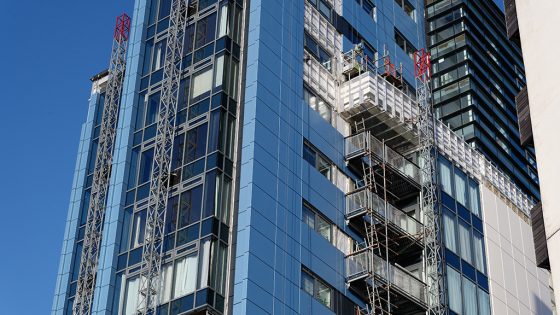Housing associations have been forced to slash their new-build plans because of gaps in Building Safety Fund (BSF) coverage.
A leading housing sector executive warned a House of Commons committee yesterday that “explicitly excluding” social tenants from the BSF has had a “catastrophic” impact on social housing targets in London in particular.
Rhys Moore, executive director of public impact at the National Housing Federation, said housing associations have been left to “find the money to cover the cost of remediation from somewhere”.
“They only have two choices,” he told the Public Accounts Committee (PAC). “It’s either investment in existing homes, repairs and maintenance, or it’s to cut back on development, and the impact on development in London has been catastrophic.”
He added that starts for social housing projects in London were down 90 per cent, and drew attention to “a direct line” between the BSF scheme and that dramatic decrease.
Moore said the “deeply inefficient” BSF setup has meant around 90 per cent of BSF funds have funded remediation for private building owners. That leaves just 10 per cent for social housing landlords.
“In the case of social housing, funding really matters, and the design of the funding currently explicitly excludes social tenants from being able to access public support,” he said.
His point echoed warnings made by the National Audit Office in November that “high threshold criteria” for government funding of remediation costs for social housing providers was causing problems.
There were also concerns that local authorities and developers are not fully prepared for the introduction of the Building Safety Levy (BSL), which is expected to come into force this autumn.
The levy will apply to “certain new residential buildings requiring building control approval in England”, according to the Local Government Association (LGA), and is expected to raise £5.1bn for remediation work.
Home Builders Federation executive director David O’Leary told the PAC that housebuilders were “very much in the dark” over the levy’s implementation.
“We still don’’t know what those rates will be,” he said.
In addition, the leader of Westminster Council said that local authorities require a clearer picture on how they will collect the levy.
Adam Hug – who also chairs the LGA’s local infrastructure and net-zero board – said local authorities were “working hard to get ready for this”.
But he warned that they need “greater clarity” on how the collection process will work and how authorities are meant to assess liability themselves.
“We need to make sure there’s a fair funding distribution mechanism that makes sure that the funding is allocated to areas that have the most affected buildings.”
Construction News approached the Ministry of Housing, Communities and Local Government (MHCLG) for comment.

